|
This project is dedicated to enhancing the protection of female prisoners' human rights and bolstering awareness among decision-makers. It is a joint effort between civil sector organizations from Croatia and Norway, with the goal of fostering better advocacy practices and networks to understand the unique challenges faced by women entangled in the legal system.
Female inmates often endure discrimination based on gender, age, and ethnicity. Widespread stigmatization and negative public attitudes towards incarcerated women hinder reporting and addressing instances of violence. Consequently, civil society organizations struggle to provide adequate support to female inmates. To tackle this issue, this project aims to develop effective advocacy tools, improve legislative frameworks, and enhance the protection of human rights for female prisoners and juvenile offenders. Project activities encompass conducting research, creating advocacy tools, launching awareness campaigns, working closely with incarcerated individuals and young offenders, organizing a series of workshops to enhance stakeholder capacity and competence, and ultimately producing a comprehensive thematic report. Funding for this initiative is provided by the Active Citizens Fund, and it is a collaborative effort between Likestillingssenteret KUN, Parents in Action (RODA – Roditelji u akciji), the Faculty of Education and Rehabilitation Sciences at the University of Zagreb, and the Faculty of Law's Study Center for Social Work at the University of Zagreb. Project manager: Kirill Gurvich, project team member: Ingjerd Hansen “Healthy Relationships” 2022-2023, EEA Grants, Civil Society programme In cooperation with Association for Human Rights and Civic Participation PaRiter, Croatia Project “Healthy Relationships" focuses on the problem of lacking content in the field of Comprehensive Sexuality Education in school curricula and insufficient recognition of its importance. The main goal of the project is to contribute to the introduction of Comprehensive Sexuality Education in primary and secondary schools in the Republic of Croatia. The project activities will also be aimed at establishment of a dialogue with local and regional self-government units, as well as at raising public awareness on importance and value of sexuality education in schools. Project coordinator at KUN Center for Equality and Diversity is Tanya Skjønhaug Meeting project in Croatia, Rijeka 15. -16. January 2023
2-day workshop on the topic “Sexual health education on the example of Norway” 17.-18. January 2021
Over 20 educators, teachers, psychologists, and people from the civil sector attended the workshop. Participants of the workshop had fruitful discussions and knowledge sharing on how one can cover CSE topics on all levels of education from kindergarten to high school. Some of the themes that we elaborated one included relationships and feelings, digital sexuality, laws and sexual rights, gender and sexuality, boundarysetting and consent, and others.
About SafeNet projectThe Greek-Norwegian collaboration project “SAFE-NET: Creating a Safety Net for girls’ victims of Online Violence” (2021-2023) aims to create a security network to address online violence against women and girls. Click here for background information on online violence and cybersafe toolkit. The project aims to raise awareness among parents, school professionals and potential victims of online violence. Project activities include
November 2022 Meeting for the project in Heraklion, CreteProject partners from the participant organizations, The Union of Women Associations of Heraklion Prefecture (UWAH), the “Institute of Humanities and Social Sciences (IAKE)”, and KUN Centre for Equality and Diversity, had the opportunity to collaborate and further develop the project deliverables, as well as plan the next steps. The project partners focused on development of tools for school professionals and secondary school teachers, as well as parents of adolescents aiming at addressing and preventing incidents of cyberviolence. By the end of the year the project group aims to release a practical manual on how to handle an incident of cyberviolence for frontline professionals (social workers, teachers, psychologists). It will contain the necessary knowledge on this type of violence, tools for reporting of cyberviolence and supporting its victims. Read the full press release here August 2021 A new intervention to tackle cyber violence against girlsA new intervention to tackle cyber violence against girls and women has been launched, aiming at a sustainable and effective response by frontline professionals and their family members. Online violence is predominantly targeted at women and girls, with young women and adolescent girls being at particular risk of online abuse and harassment. The United Nations (UN) report “Cyber Violence Against Women and Girls: A Worldwide Wake-Up Call” notes that globally 73% of women have experienced some form of online violence. Online abuse and harassment originate, reinforces, and reproduce the same structural inequalities and discrimination as other forms of gender-based violence. The prevention of the phenomenon and its effective response is considered to be of paramount importance. Changing societal attitudes and perceptions is the first step in changing the way cyber violence is treated as a serious challenge. In this context, it is essential to raise awareness and inform both the new generation of technology users, i.e. boys and girls, and parents and school professionals, as well as to create tools to protect and support women and girls who are victims of violence. The project aims to create a safety net to address gender-based online violence and support girl victims of violence, through actions developing the capacity of school professionals to identify and manage incidents in the school environment, raising awareness of parents and families about the phenomenon and management of disclosure of violence. It is particularly important to create a framework of safety for adolescent girls, so that they can disclose phenomena and incidents of violence online without fear and, most importantly, in a safe and supportive environment. Research has shown a very low level of perception on the part of teachers but especially on the part of parents of this phenomenon. Furthermore, research has shown the weakness of frontline staff in dealing effectively with such incidents, a gap that SAFENET is called upon to fill. In this framework, a reporting and support protocol for victims of gender-based cyber violence will be developed and disseminated to frontline staff in Greece and Norway. In addition, guidelines for parents and their supportive context will be developed for the phenomenon, while all these interventions will form the central core of education and dissemination activities in school communities and society. The SAFENET project is implemented in the framework of the Active citizens Fund programme, with the Union of Women Associations of Heraklion and Heraklion Prefecture, and partners KUN - Centre for Equality and Diversity (Norway) and the Institute of Humanities and Social Sciences IAKE (Greece). The €13.5 million Active Citizens Fund programme is funded by Iceland, Liechtenstein and Norway and is part of the European Economic Area (EEA) funding mechanism for the period 2014 - 2021, known as EEA Grants. The programmeaims to strengthen and enhance the sustainability of civil society and to highlight its role in promoting democratic processes, enhancing citizens' participation in the public sphere and defending human rights. The Active citizens fund grant for Greece is managed jointly by the Bodossaki Foundation and SolidarityNow. Read more here. “I have a dream”, 2021-2024, EEA Grants In cooperation with LARGO I Have a Dream project aims to evaluate, implement and disseminate with the support of its Norwegian partners (the Norwegian advocacy organisation KUN - Centre for Equality and Diversity, which has extensive experience in empowering vulnerable social groups, committed to the cause of women's and minorities' rights) new methods of empowering Roma women and girls through direct advocacy that empowers them and allows them to organize and defend their interests before local and central authorities, based on the following elements:
This project aims to:
Achieved quantitative results for the 30 month project implementation1. The Bulgarian project team has held 33 team meetings 2. Within the 18 two-day soft skills trainings the 3 trainers have trained 315 participants from 6 locations; 3. 18 events have been organized, 6 public discussions have been held in 6 localities with the participation of about 150 people; 4. A survey was also conducted on the Bulgarian and Norwegian side by organizing and conducting 6 focus groups and 17 in-depth interviews to explore the problems, challenges and opportunities facing Roma women with the participation of 63 representatives of the target group in the towns of Kyustendil, Radomir and Dupnitsa; 5. As a result, 4 reports were written (1. Why Dreams Fly South report; 2. Roma in the EU and Norway: challenges and most effective practices for empowerment research paper, by Helene Röd and Kiril Gurvich, KUN Centre for Equality and Diversity, Norway; 3. Empirical research through in-depth interviews with representatives of the target groups, conducted by KUN Center for Equality and Diversity, Norway; 4. Report on the activities of Roma clubs "On the invention of biography, on leisure management and on the ability to be heard when you speak"). 5 types of communication and information materials were printed (information brochure, poster, Colourful melancholy booklet with personal stories , Why dreams fly south report; "Roma in the EU and Norway: challenges and most effective practices for empowerment study report); 6. Over 300 participants took part in 160 gatherings of Roma Women's Clubs, with six advocacy campaigns in six localities and a travelling exhibition of 22 individual photographs, as well as two national meetings with 74 atendees; 7. As part of a communication and public awareness campaign we got 24,696 visits to the project website, 47 posts were uploaded, and we produced 3 documentary videos on early marriage, Roma women's dreams for development and Roma education; 8. FB profile of the project got over 60 individual posts that generated over 70,000 people outreach. Kyustendil, Sofia, Dupnitsa, Blagoevgrad and Pernik. Bulgaria, Germany and UK were the top three countries of visitors. We reported about 50 separate internet media coverages of our events through published articles and reports. Quality results achieved. SurveysDesk research colleagues from Norway carried out a study on good practices for Roma empowerment in the EU through direct advocacy, presenting concrete projects, campaigns and initiatives for empowerment through direct advocacy that will serve to implement this innovative method in our country. In addition, through in-depth interviews, they also produced a report on the situation of Roma in Norway, with topics covered including a description of discrimination in the housing market, education and work, gender inequality including domestic violence, antigypsyism and empowerment. On the Bulgarian side, we prepared Colourful melancholy booklet - a collection of personal Roma women's stories and experiences who have achieved success in different professional and life spheres, as well as a mirror non-representative qualitative study Why do dreams fly south? through qualitative sociological research methods (in-depth interviews and focus groups) on the situation, problems, challenges and opportunities facing Roma women in Bulgaria (in order to analyze different perspectives on Roma women's empowerment). DiscussionsThe project organized and held 6 one-day discussions in 6 cities of the country (Kyustendil, Botevgrad, Dupnitsa, Rakitovo, Radomir, Blagoevgrad). The aim of the meetings was to present the project, to share good practices, conclusions and recommendations from the research, as well as to discuss the idea of forming Roma women's clubs in the 6 cities. The meetings were attended by over 130 representatives of the target group (active Roma women from the local communities), selected with the help of 6 local NGOs. Our partners from KUN joined in with an encouraging video greetings - talking about their experiences with empowering vulnerable groups, the findings and conclusions of their research. Roma Women's Clubs - impact /outputsThe aim of the clubs is to support Roma women in building personal skills and developing self-confidence; visual advocacy and advocacy through art and culture; direct advocacy, as well as developing attitudes, will and skills to organize and conduct direct advocacy campaigns. Participants discuss various topics related to problems in Roma neighborhoods (health, infrastructure, education, development opportunities), Roma customs, traditions, lifestyle, Roma cuisine, history of Roma ethnicity, leisure activities, opportunities for career development and improvement of living status, the role of women in the Roma community, etc. The coordinators of the clubs were Roma women from the local communities who recruited participants to the clubs, organized the meetings and managed the activities, i.e. we achieved direct involvement in the organization of the project and the local clubs at the local level, and where the women organized themselves. The project team supported the activities with methodological guidance. Personal development trainings - impact /outputsA series of trainings on soft skills on various topics were conducted (teamwork skills, self-confidence and self-perception, fighting stereotypes and prejudices, time management, opportunities for self-development), participation in activities and events to support confidence, motivation and empower Roma women and young girls to participate in the resolution of important civic problems and issues of public importance. Participation in the trainings gave new self-confidence and knowledge to the participants, influenced at local level to break stereotypes about the role and place of Roma women. Advocacy campaigns - impact /outputsThe latter were held in six localities, their main objective was to solve local problems in different areas, and developed the potential of the representatives of our target groups to self-organize, demonstrate self-empowerment, set goals and systematically achieve them. What they have in common is that they represent the pro-active civic behaviour of local residents from Roma neighbourhoods in the settlements, who show care and responsibility towards improving the lives of their local communities. The innovative method of empowerment through direct advocacy, which is the main objective of the project, was applied in this activity, as the implementation of the local campaigns was led by the Roma women's clubs and their participants. Information campaign - impact /outputsThe generic and paid campaign reached a huge range of the target group and the general public. Information on all project events and news have been regularly uploaded on the official project website and also on the project FB profile.This information continues to be disseminated to stakeholders of LARGO Association and submitted to the Active Citizens Fund. Traveling exhibition on direct advocacy through photovoice - impact /outputsIt depicted Roma women in a very different way - both in communities and families and in society as a whole: ambitious, confident, successful, independent, persistent, combinative, civic and economically active. The traveling exhibition reveals the many faces of successful Roma women - part of the Roma community in the country, who are the living example for others, and demonstrates the positive role models of successful women and girls in their fields of realization from six localities with Roma community. They are educated, beautiful, ambitious and determined to work in their chosen professions. The biggest challenge is to fight with themselves, to believe that they can, that they know and that they will succeed in their fields. Teacher of Bulgarian, English and mathematics, social worker, advocacy expert, mother, owner of an urgent care office, laboratory technician, health mediator, student, geologist, make-up artist, hairdresser, small-scale enetrpreneur - these women are living proof that Roma women are capable of achieving a lot and their achievements can be in different lights in different fields. Project sustainabilityThrough the project, we introduced and tested the model of direct advocacy, which empowers the target groups and allows them to organize and advocate their interests with local and central authorities. LARGO and LARGO's target groups developed their capacity to organise and run successful direct advocacy campaigns in different areas - health, social policies, education, culture, etc. Good practices for direct advocacy are available to all NGOs and informal civil society groups that would like to use this mechanism to protect their interests. The results will be sustainable, precisely because through the project we have shown that the model is applicable in our country, works effectively and the experience we have gained from its approbation is accessible to all. The direct advocacy practices are already being successfully replicated for other civic causes in different parts of the country - in USAID-funded LARGO project in Dupnitsa, Kyustendil and Radomir cities where there are advocacy campaigns for the rule of law, and in the new LARGO project funded by the Bulgarian Fund for Women in which national thematic trainings are provided. The direct advocacy approach was also integrated in the civic education curriculum at the Spanish High School in Sofia and at BUDITEL SofUtni High School. This page has been produced with the financial support of the Active Citizens Fund Bulgaria under the Financial Mechanism of the European Economic Area. The entire responsibility for the content of this document lies with the Liberal Alternative for Roma Civic Association - LARGO in partnership with KUN Centre for Equality and Diversity - Norway, and under no circumstances can it be assumed that this document reflects the official position of the European Economic Area Financial Mechanism and the Operator of the Active Citizens Fund Bulgaria www.activecitizensfund.bg. The I Have a Dream project is implemented with financial support from Iceland, Liechtenstein and Norway under the EEA Financial Mechanism. The main objective of the I Have a Dream project is to approbate, implement and disseminate innovative methods for empowering Roma women and girls through direct advocacy.
Cávado + Igual 2021-2023, EEA Grants
In cooperation with CIM Cávado (Portugal) The Cávado + Igual project is an Open Call#5 – Intervention projects to promote gender equality at local level, within the scope of the Work-life Balance Programme and funded by EEA Grants. The objectives of the project are centered on the assumption of a municipal and sub-regional commitment to the promotion of gender equality and balance of professional, personal, and family life. Gender Equality Promotion 2021 – 2023, EEA Grants
In cooperation with Inštitút ľudských prav, Slovakia The objective of the project is to raise public awareness about gender equality through numerous online campaigns and educational activities directed at young women and men. Young people will be engaged in a thinking process on the topics of gender stereotypes, gender roles, as well as will have a chance to examine and reflect on their own prejudices on themselves and on other gender. DIVERS@S AND ATIV@S: Promoting diversity and non-discrimination in the professional workplace 2021-2023, EEA Grants
In cooperation with Associação Portuguesa para a Diversidade e Inclusão (APPDI), Portugal The project intends to develop a set of transformative tools and instruments to promote workplace diversity and combat discrimination against vulnerable groups. Through construction of a collaborative awareness campaign and involvement of numerous companies and social entities, the project will stimulate promotion of inclusion and equality in the workplace. An Erasmus + project with Estonia and the Czech Republic Starting in 2019, KUN together with Genderove informacni centrum NORA (Czech Republic) and the Eesti Naisteühenduste Ümarlaua Sihtasutus (Estonia) were granted Erasmus + funding to work on gender-sensitive education in schools. The project aims to focus on the gender segregation in education and what effects can be found on a societal level. Representing three European countries with differing demographics, geographies, histories and current gender roles, the project partners will be offering their own insights while encouraging those taking the course to reflect on their own experiences, biases, privileges and possibilities. The project addresses the issue of gender in education. It aims at enhancing teachers’ sensitivity to gender issues. In this way, it will contribute to more inclusive classroom environments where girls and boys can develop their competencies in a safe and welcoming atmosphere without the pressure of restrictive gender stereotypes. Gender differences are often taken for granted in a school environment, but gender stereotypes have a strong influence on the achievement of children, and if teachers are not sensitive to issues related to gender, the school environment can reinforce sexist patterns in children’s everyday lives. The goal of this project is to help teachers be reflective on the existing gender order and gender stereotypes in society and their own biases, and act against this order. It is a very important component of the teachers’ competencies. For more information, see the Czech partner's website, mainly in English (opens in a new window).
Most recent events:
The project events planned for 2022 include a workshop in Prague, where we hope to celebrate International Women’s Day on March 8th with the Norwegian Embassy. The study tour to Norway has been rescheduled for June 2022 and will be held in conjunction with the Norwegian dissemination event, before a final dissemination event in Brussels in August. May 2020: Covid-19 and changes to the project progress plan Due to the Covic-19 closedown in Europe starting mid-March, the planned joint staff training event, to take place in Steinkjer March 16th to 20th, was cancelled on very short notice. We have tentatively re-scheduled the event for March 2021. The project group meeting in Tallinn planned for late June has similarly been cancelled and tentatively re-scheduled for October 2020. Work on the Intellectual Outputs will proceed as planned, with consultations on digital platforms.
KUN (NO), Ekvalita (FI), Elevernas Riksforbund (SE) in the project "Safe schools" will develop a common Nordic method based on norm criticism to create an inclusive and equal school with a focus on increased student participation.
This will be done through five different work packages with the inclusion of student councils, principals and student representatives in upper secondary schools and secondary schools in Norway, Sweden, Finland and Åland. We will end the project with a digital launch for the project's target groups: rectors, student councils and student representatives in the Nordics. The student representatives will be the ones who continue the work and spread the method further in their own countries. The project manager at KUN is Karin Hovde. Through the project, we will carry out a network gathering among queers in Sápmi, for the exchange of experience and organizational development. The aim is to strengthen the queer Sami organization and in that way build up more and better meeting places for the whole of Sápmi. In the long term, more meeting places and a stronger queer Sami organization will contribute to more openness and knowledge, both among queer Sami, but also the general population.
The network gathering will bring together participants from the Finnish, Swedish and Norwegian sides. Such network gathering has two main purposes:
The project is financed by Nordisk Ministeråd, and is a collaboration between KUN, Garmeres Norge, Sameföreningen i Stockholm Sweden and Suomi Sami Nuorat Finland. BridGEs: Alto-Minho companies for Gender Equality 2020 - 2023, EEA Grants
In cooperation with Faculty of Psychology and Educational Sciences of the University of Porto (FPCEUP), Portugal The project aims to create and test instruments to measure and study gender inequalities in work organisations, involving the direct and active participation of organisations. Since the project's actions are essentially directed at the business sector, it is of utmost importance for companies to participate in this process, contributing from the outset to the co-construction of the products addressed to them, analysing their feasibility and feasibility in their contexts and anticipating obstacles and ways to overcome them. Social and Legal Actions to Combat Honor Related Abuses 2019 – 2021, EEA Grants
In cooperation with Center for Development of Sustainable Communities (Bulgaria) and Women Lawyers Association (Bulgaria) The project gave focus to the problem of honor related violence existent in the Bulgarian and Norwegian societies. The partnership organizations worked towards creating awareness about the issue and to the present inadequate protection of honor violence victims. During the project implementation, an analysis of the existing policies on the issue was carried out, recommendations for changes in policies and legislation aimed at the prevention of honor related violence were developed and presented to public institutions. Inclusive Workplace 2021, EEA Grants: Active Citizens Fund, Bilateral Initiative
In cooperation with Zensky algoritmus ( Slovakia) KUN Centre for Equality and Diversity participated in the project by providing a series of training sessions on the topic of “Diversity and Inclusion in the workplace”. Best practices were shared, and discussions were held around the topics of how to attract and implement diversity in the workplace, how to keep it and measure it. ENVOLVI 2019 – 2021, EEA Grants
In cooperation with Novo Dia - Associação para a Inclusão Social (Portugal) The defense of human rights of elderly people living in the Azores (Portugal) is the focus of the present project, aiming to foster healthy intergenerational relations to strengthen social cohesion and promote active citizenship and aging. The project includes activities that acknowledge and value the potential of older generations, as well as the issue of isolation and violence against the elderly is given focus to. Vietnam 2009-2014
The project was carried out together with the Vietnamese Ministry of Labour, Invalids and Social Affairs with the goal of enhancing Vietnam's capacity for gender equality work through application of the Norwegian experience. The project contributed to integrating a gender perspective in legislation, strategy and action plans, and influenced policy development in the gender equality field. |
|
likestillingssenteret KUN
Org.nr 969 983 451 Telefon: +47 75 77 90 50 E-post: [email protected] Om oss Ansatte English Last ned KUNs logo her |
Post - og besøksadresse
likestillingssenteret KUN Nordfoldveien 101 N-8286 Nordfold Avdelingskontor Steinkjer likestillingssenteret KUN Skolegata 22 N-7713 Steinkjer |
|
Illustratør: Thea Jacobsen
|
Utvikler: V design AS
|
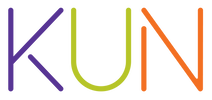
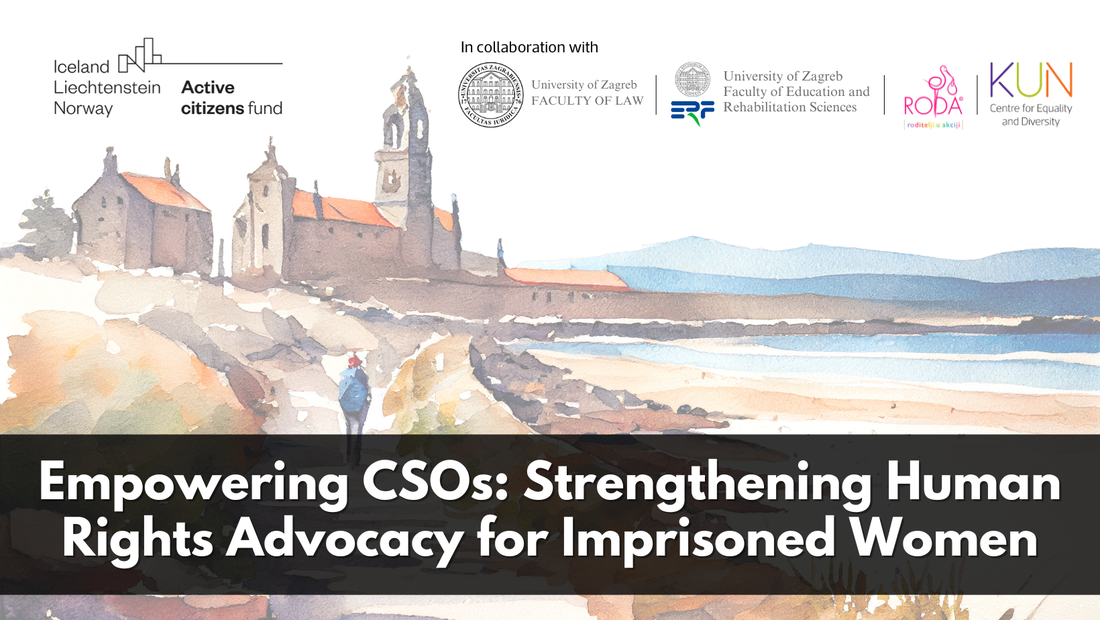
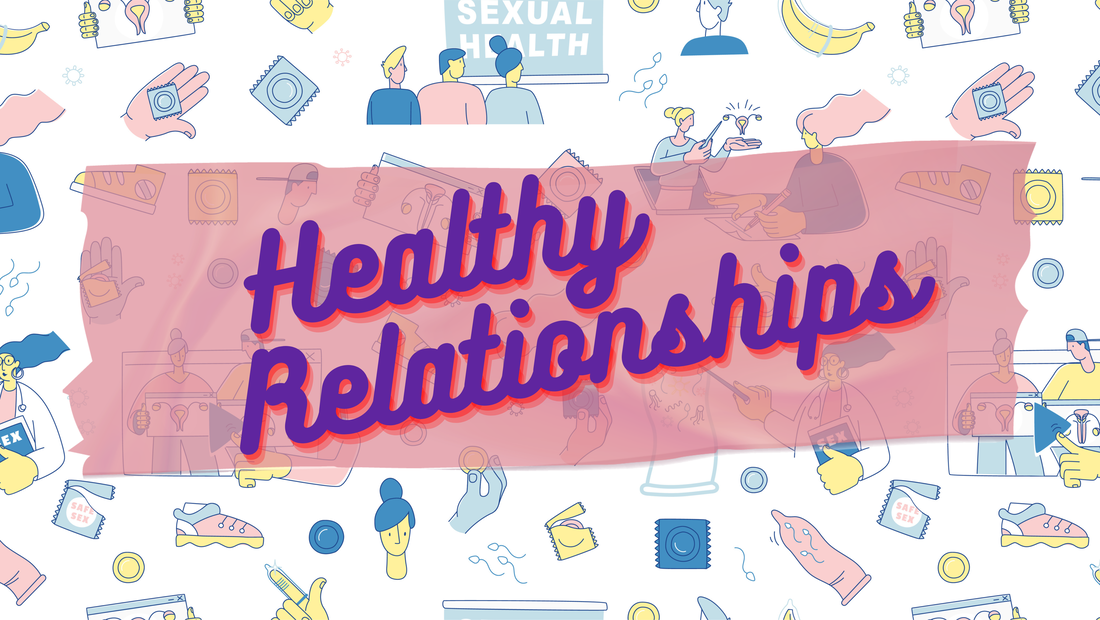
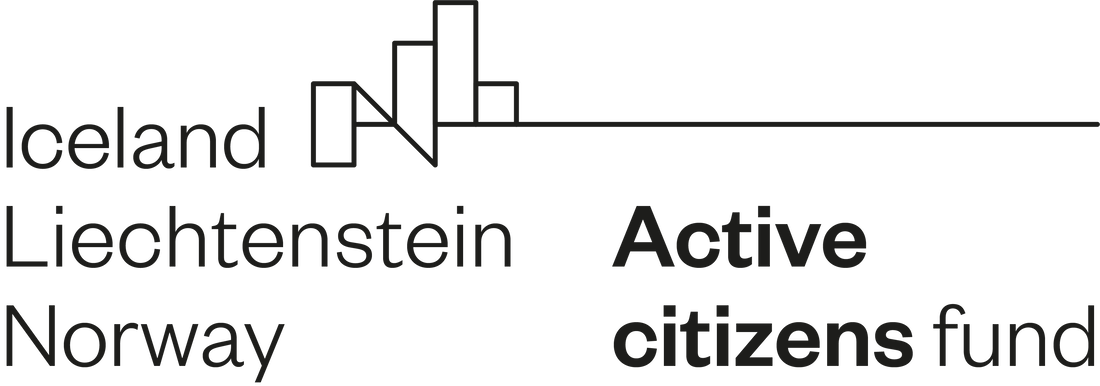

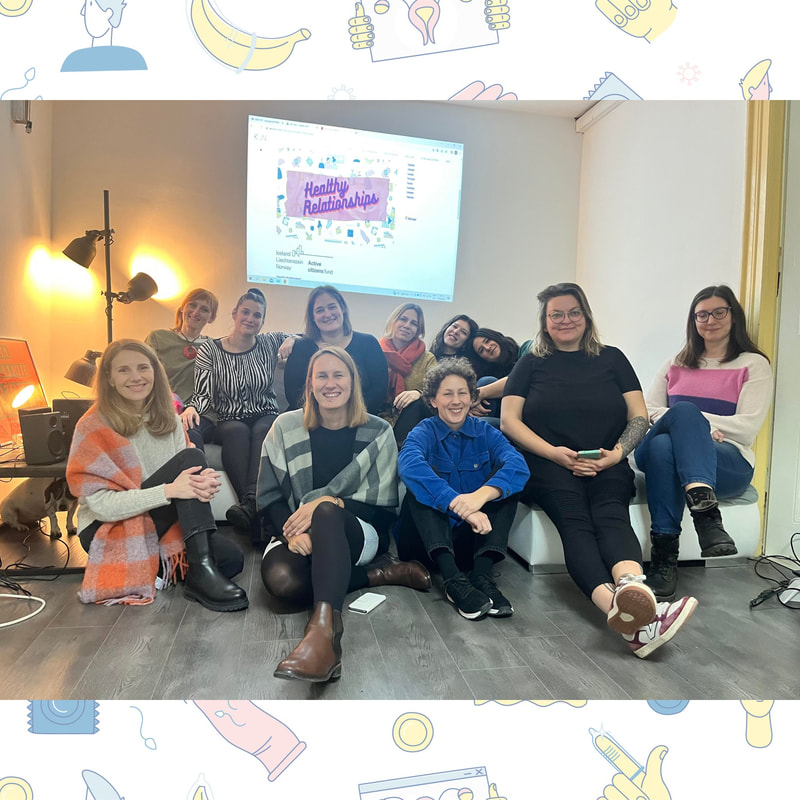
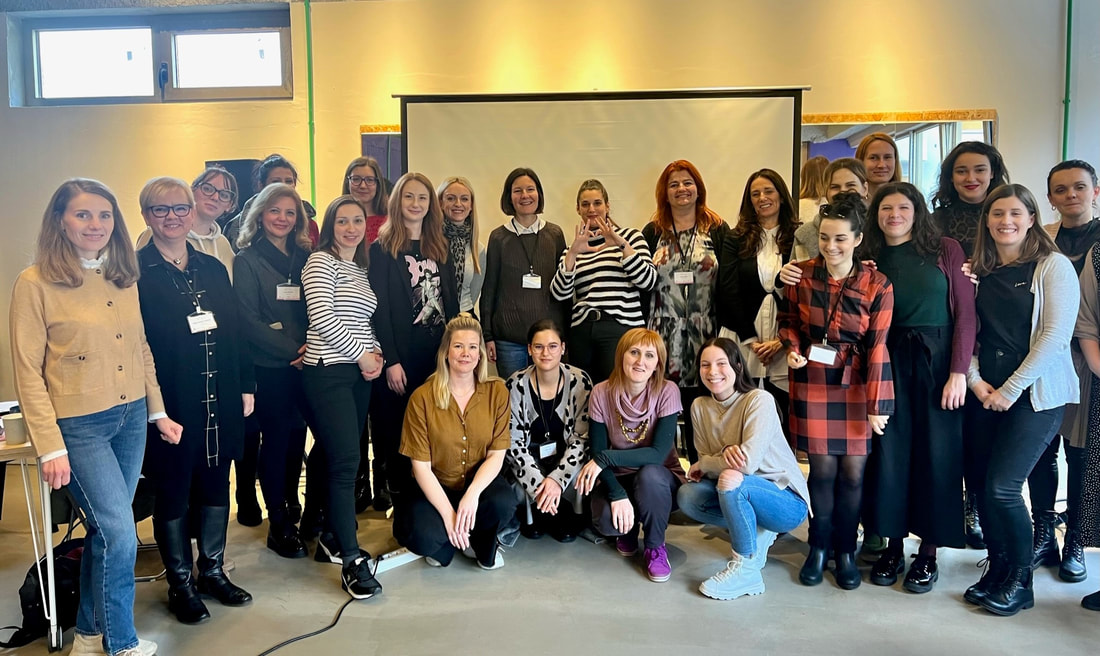
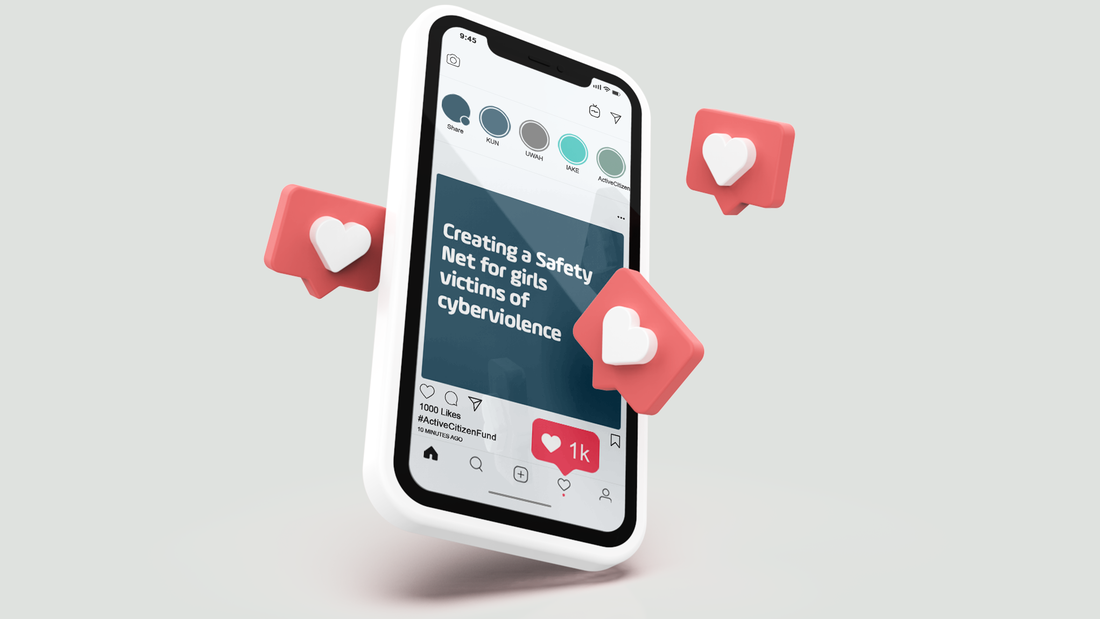
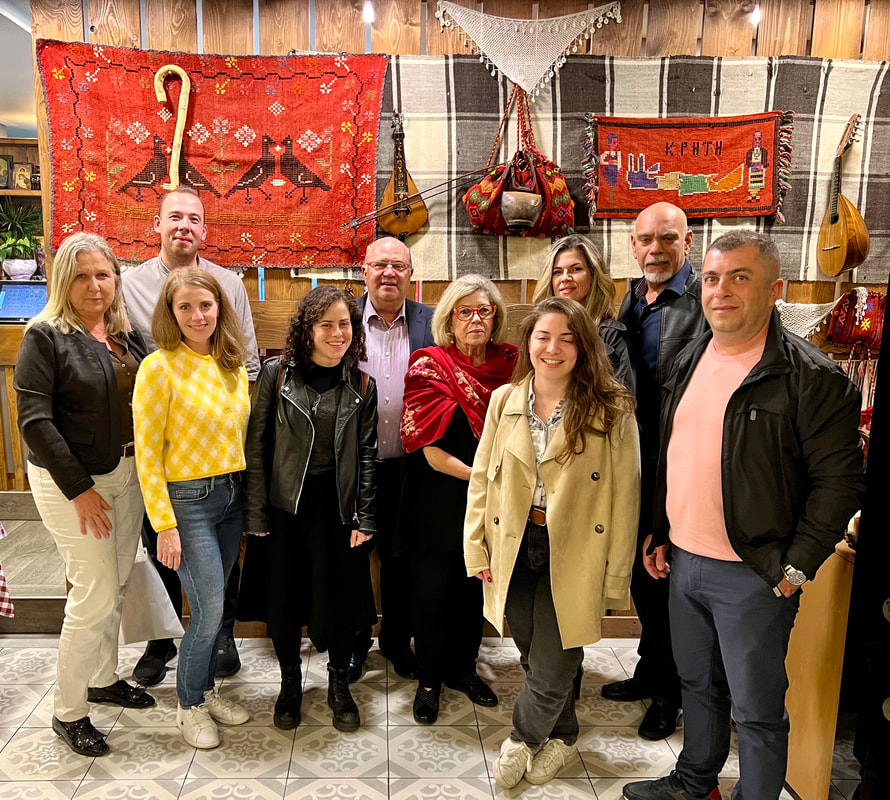
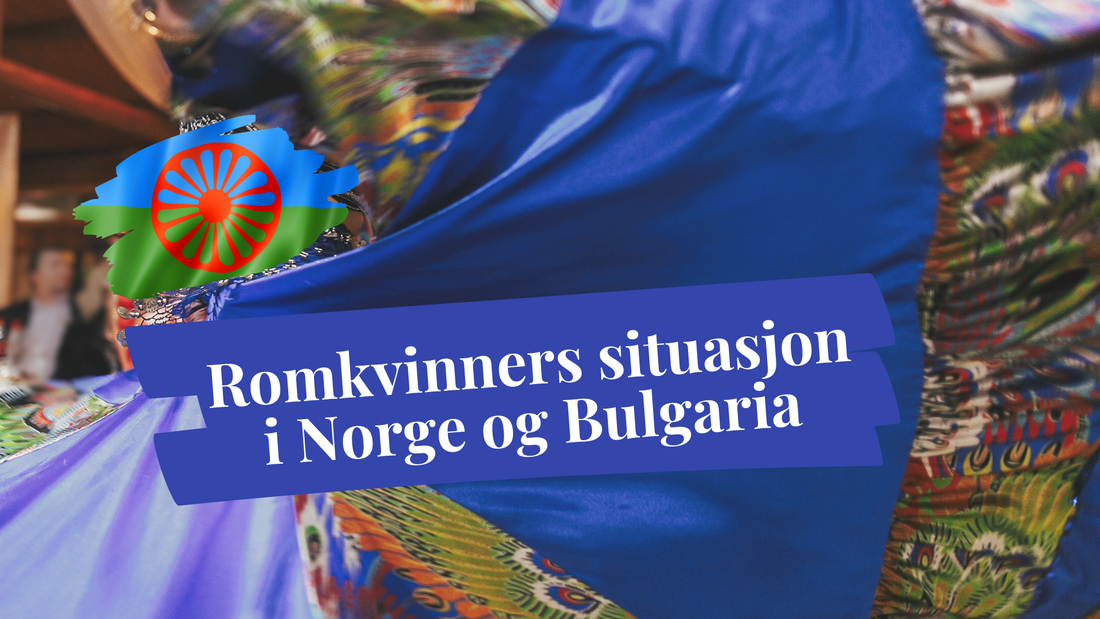
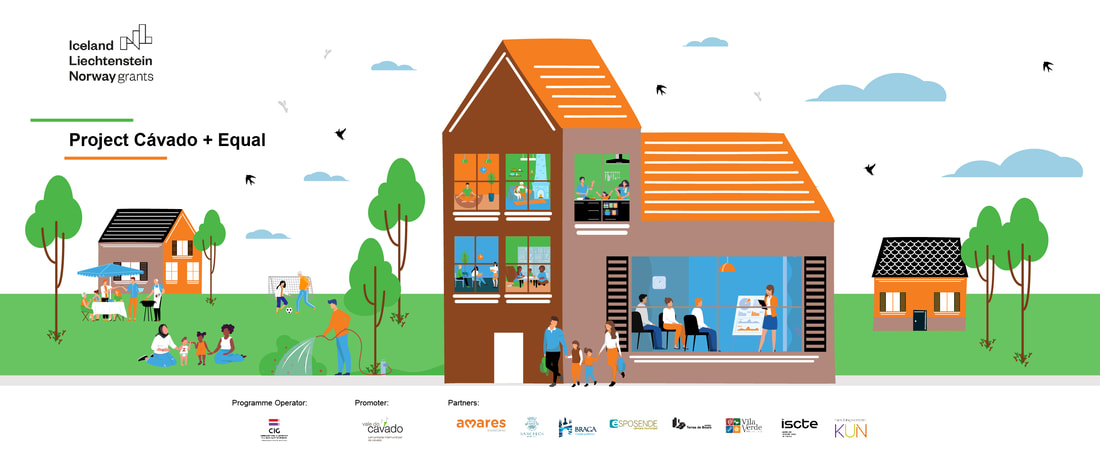
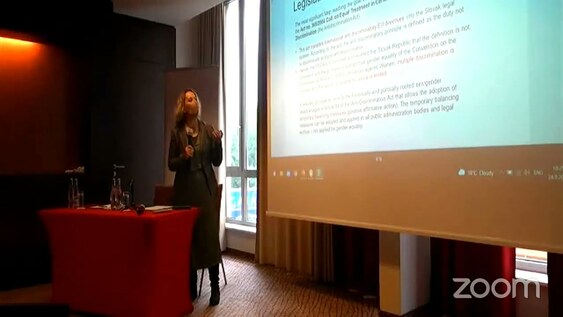
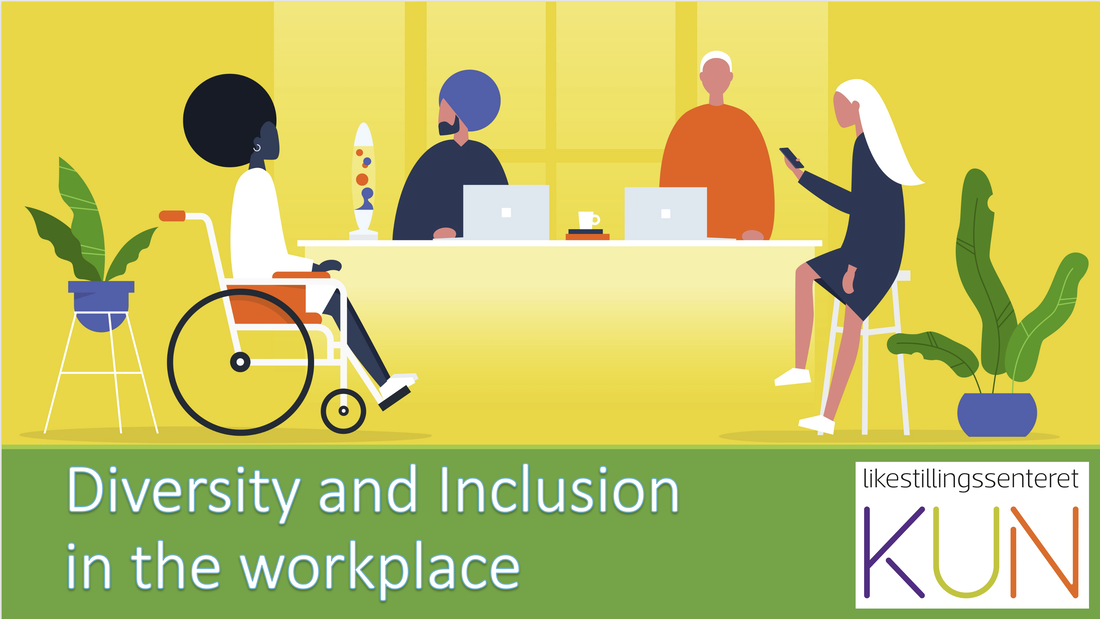
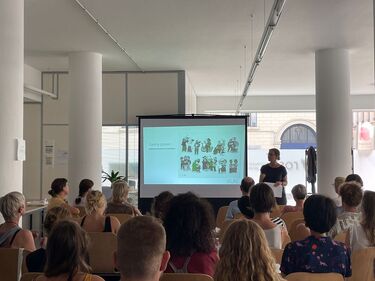
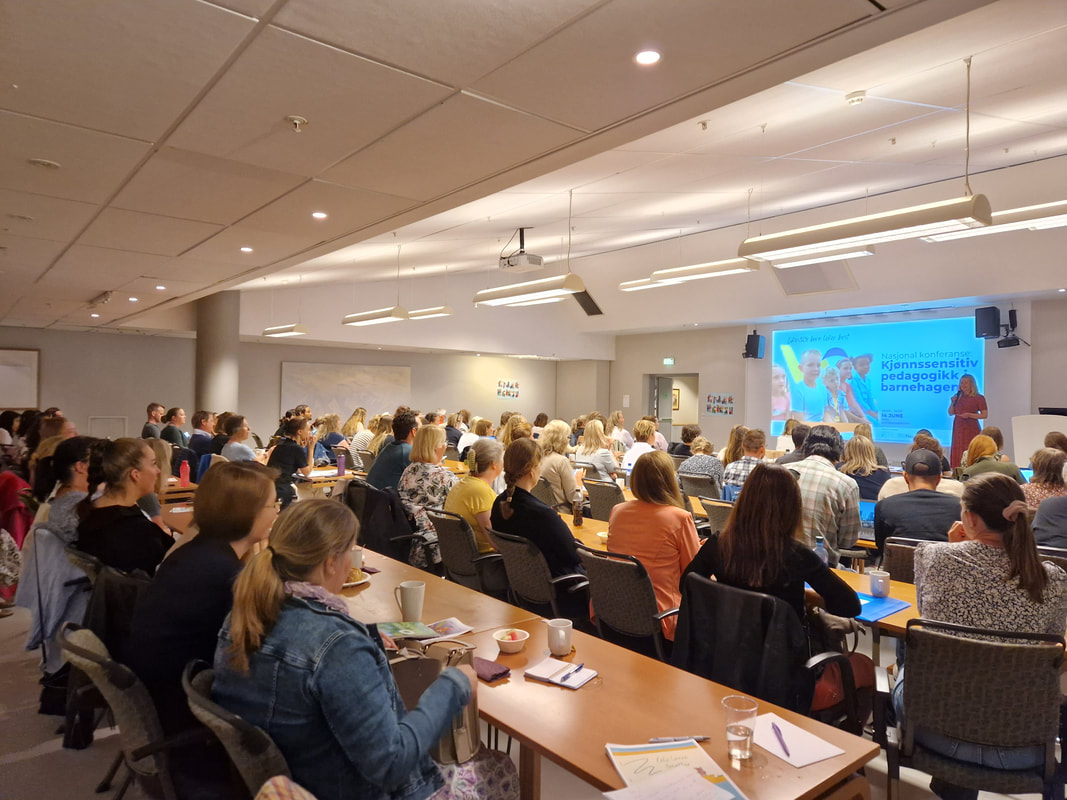
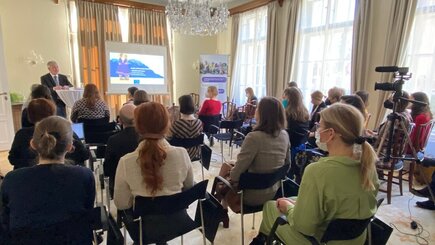
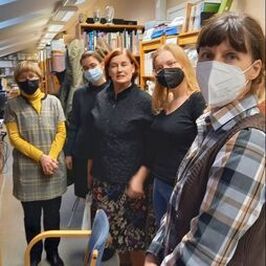
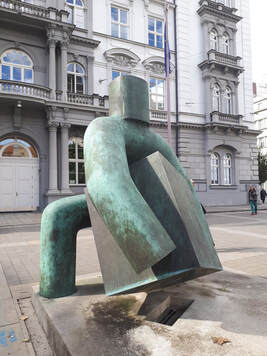

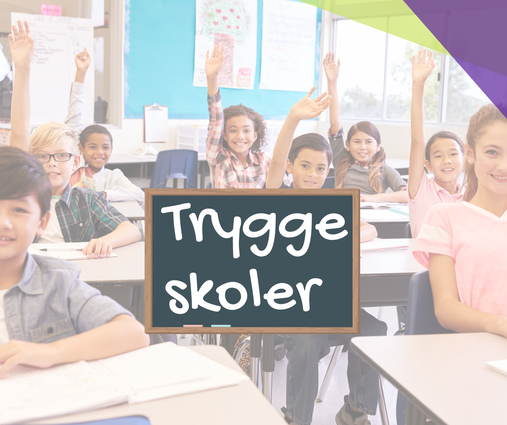
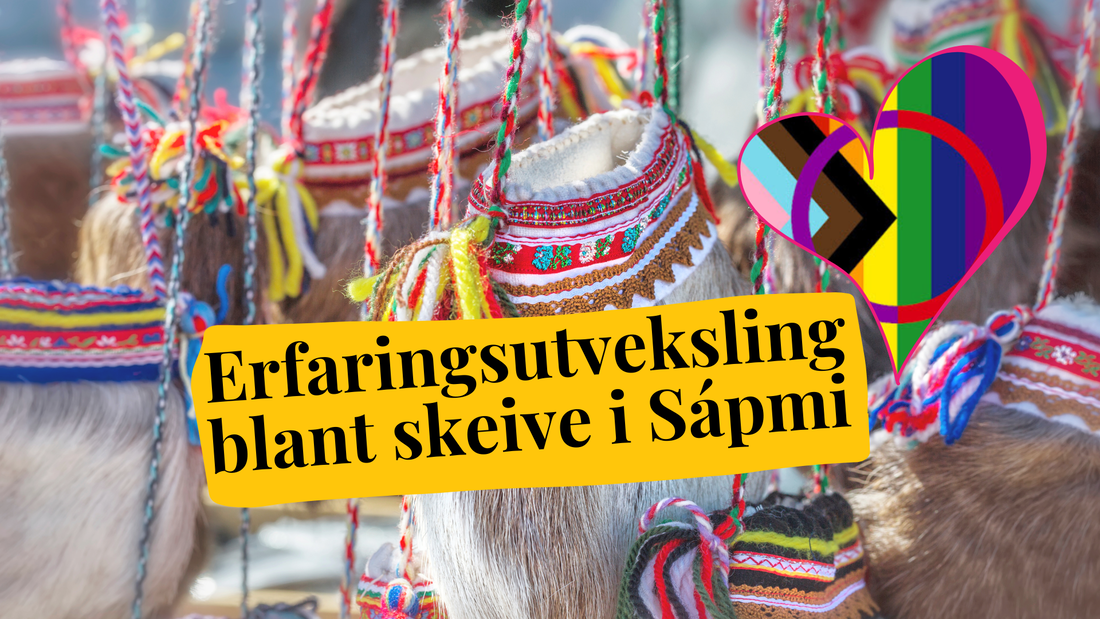
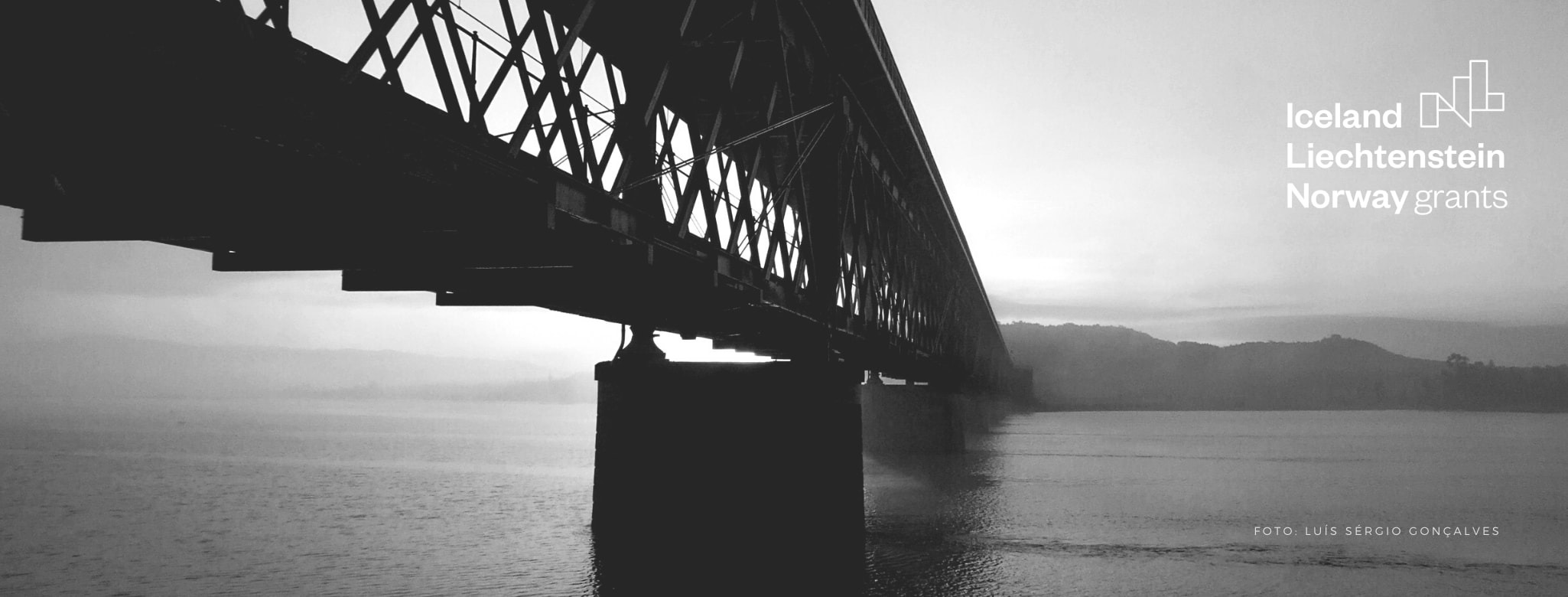
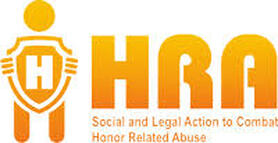
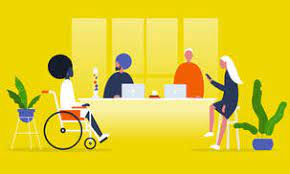
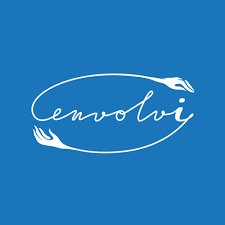
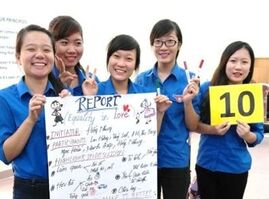
 RSS Feed
RSS Feed